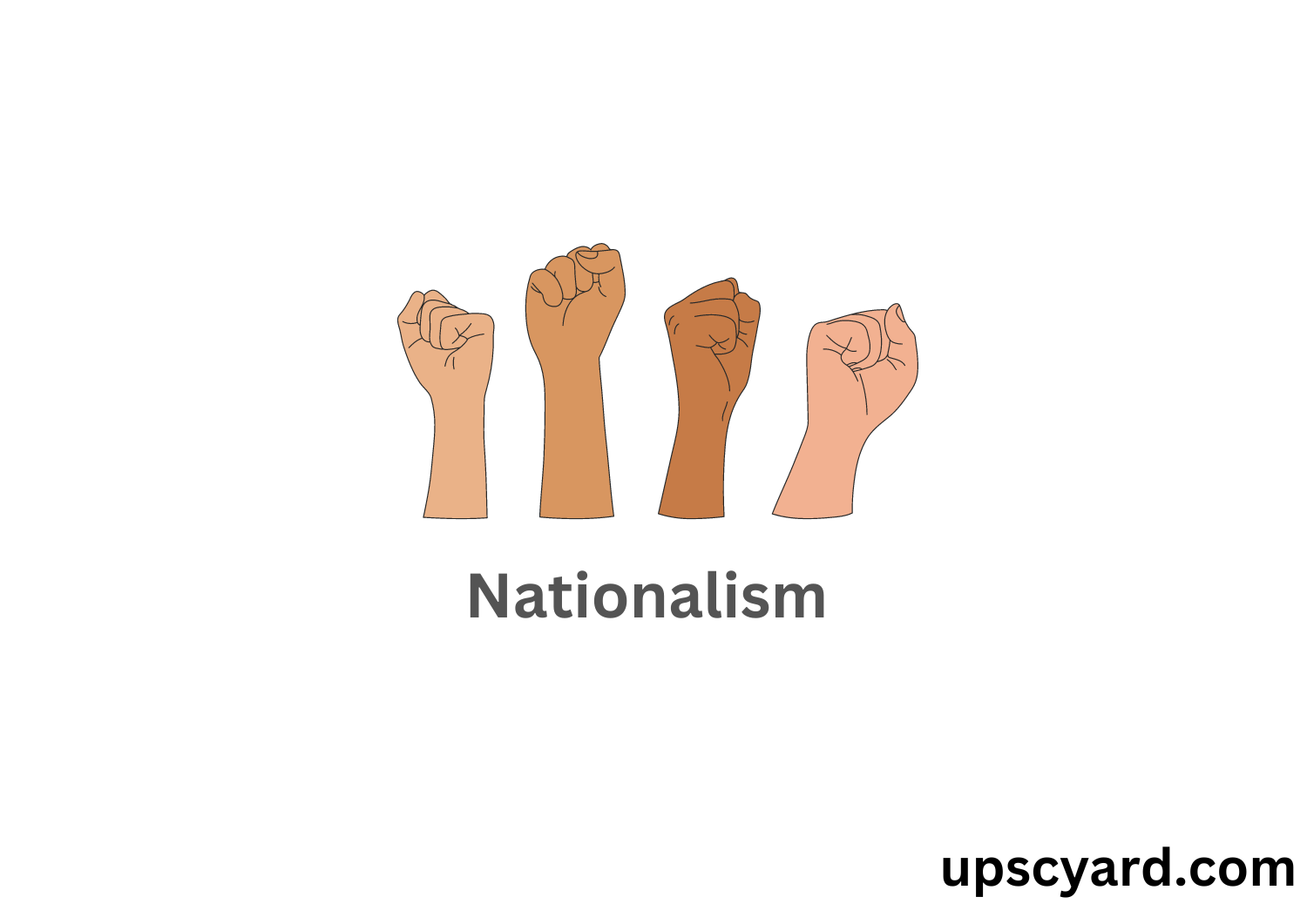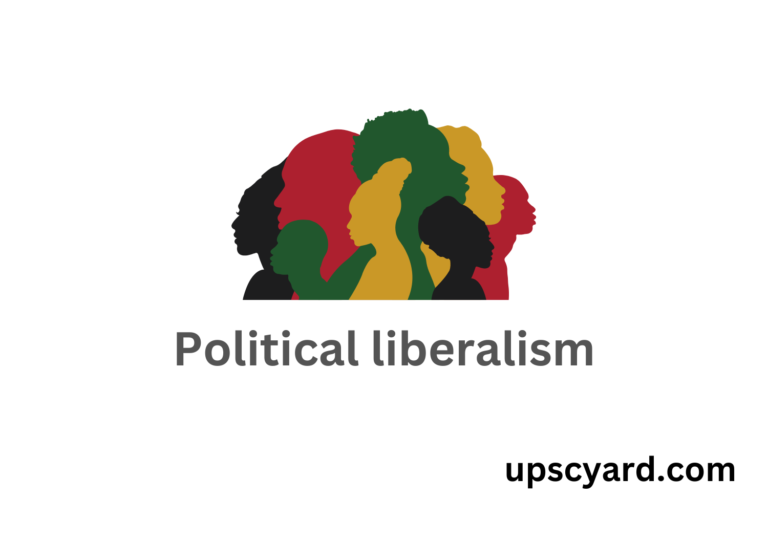Nationalism exhibits a dual nature, encompassing both universalism and particularism. It makes universal assertions about how the world should be structured, while also being specific to individual nations. This combination is evident in statements like:
- “In a nation-state, the official language should be that of the nation, and all citizens must use it instead of a foreign language.”
- “In Germany , the official language should be German, and all German citizens should communicate in it.”
Challenges in the theory of Nationalism
Early examinations of nationalism primarily consisted of historical narratives focusing on nationalist movements. Towards the late 19th century, Marxist and socialist thinkers offered critical political analyses of the nationalist movements prevalent in central and eastern Europe at that time.
The bulk of sociological theories on nationalism emerged after World War II. Some aspects of nationalism theory delve into matters that concern nationalists directly, including questions about national membership, exclusion, and the intricate definition of ‘belonging’.
Genesis of Nationalism theory
According to modernist theories, prior to around 1800, people primarily held local loyalties, and national identity and unity were introduced from above by European states as part of the modernization of their economies and societies. In this perspective, nationalist conflicts were unintended consequences of these developments. Ernest Gellner suggested that nations emerged as a by-product of industrialization, which required a large literate and culturally homogenous population. Similarly, Charles Tilly argued that states promoted nationalism to secure popular consent for conscription into large modern armies and taxation, which were essential for maintaining these armies.
According to the modernist view, the French Revolution led to the creation of the first true nation-state, although the tendencies towards nation-states had been present since the beginning of the Modern Era. Additionally, there were instances of bottom-up nationalism, like German Romantic nationalism, which manifested in the resistance against Napoleon.
Recent theories of nationalism focus on the social construction of nations. Scholars like Benedict Anderson describe nations as “imagined communities.” Gellner further adds that nationalism invents nations even where they did not previously exist. The rise of nationalism is seen by modernization theorists as linked to the development of technologies like the printing press and the economic system of capitalism, which they consider necessary conditions for the emergence of nationalism.
Types of Nationalism
Ethnic Nationalism
Ethnic nationalism, also known as ethnonationalism, characterizes a nation based on ethnicity, incorporating a sense of ancestry and descent from preceding generations. It revolves around the notion of a shared culture among group members and their ancestors, often accompanied by a common language. Being part of the nation is considered a hereditary status, passed down through generations.
Cultural Nationalism
Cultural nationalism identifies the nation through a common culture shared among its members. It differs from ethnic nationalism in that membership in the nation is not solely determined by heredity, as one cannot instantly adopt a culture, and it is not entirely voluntary either. For instance, children of nation members raised in a different culture might not be automatically considered part of the nation. Chinese nationalism serves as an example of cultural nationalism, given its diverse national minorities, including those on Taiwan who reject the mainland Chinese government but still claim association with the mainland Chinese state.
Civic Nationalism
Civic nationalism, also known as civil nationalism, is a type of nationalism where the state’s political legitimacy is derived from the active involvement of its citizens and the extent to which it represents the collective “will of the people.” This form of nationalism aligns with the principles of rationalism and liberalism, distinguishing it from ethnic nationalism. In civic nationalism, membership in the nation is viewed as voluntary. The ideals of civic nationalism have played a significant role in shaping representative democracy in nations like the United States and France.
State Nationalism
State nationalism is a variation of civic nationalism, often intertwined with ethnic nationalism. It suggests that the nation forms a community of individuals who actively contribute to the preservation and empowerment of the state, and that each person’s purpose is to support this objective. An illustrative example of state nationalism can be found in Italian fascism, epitomized by Mussolini’s slogan: “Tutto nello Stato, niente al di fuori dello Stato, nulla contro lo Stato” (Everything within the State, nothing outside the State, nothing against the State). The creation of a unitary and centralized French state by the revolutionary Jacobins is often considered the original manifestation of state nationalism. Later examples of state nationalism include Franquist Spain and contemporary Turkish nationalism.
Religious Nationalism
Religious nationalism is a concept that defines the nation based on a shared religious identity. In cases where the state’s political legitimacy is derived from adherence to religious doctrines, it can be more accurately described as a theocracy rather than a traditional nation-state.
Irish nationalism, for instance, has historically not revolved around theological distinctions such as transubstantiation, the status of the Virgin Mary, or the primacy of the Pope. However, for certain Protestants in Northern Ireland, these pre-Reformation doctrines hold significance within Irish culture.
In contemporary India, Hindu nationalism, commonly referred to as Hindutva, has gained prominence among many supporters of the Bharatiya Janata Party (BJP) and Rashtriya Swayamsevak Sangh (RSS). This form of nationalism is centered around the assertion of Hindu identity and values.
Pan Nationalism
Pan-nationalism typically involves a form of ethnic and cultural nationalism, where the concept of a “nation” encompasses a cluster of related ethnic groups and cultures, like the Turkic peoples, for example. In certain cases, pan-nationalism may be associated with mono-ethnic nationalism, where a national group is spread across multiple states and a large geographical area, as seen in the case of Pan-Germanism.
Extremism and Nationalism
Nationalism can be found as a component in various political ideologies, including its more extreme form, fascism. However, it would be oversimplified to merely label fascism as an extreme version of nationalism, even though non-extreme nationalism might exhibit some similarities with a lesser form of fascism. Fascism, both in its general sense and the original Italian form, is characterized by a powerful fusion of ethnic nationalism and state nationalism, often accompanied by elements of economic and ethical socialism.



